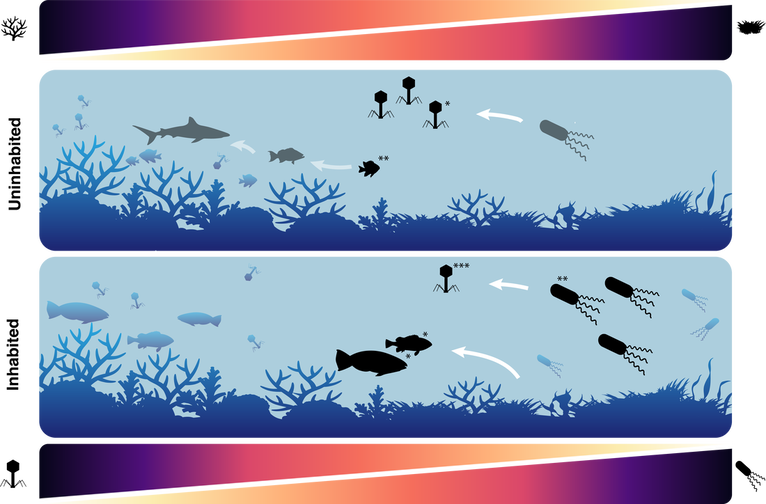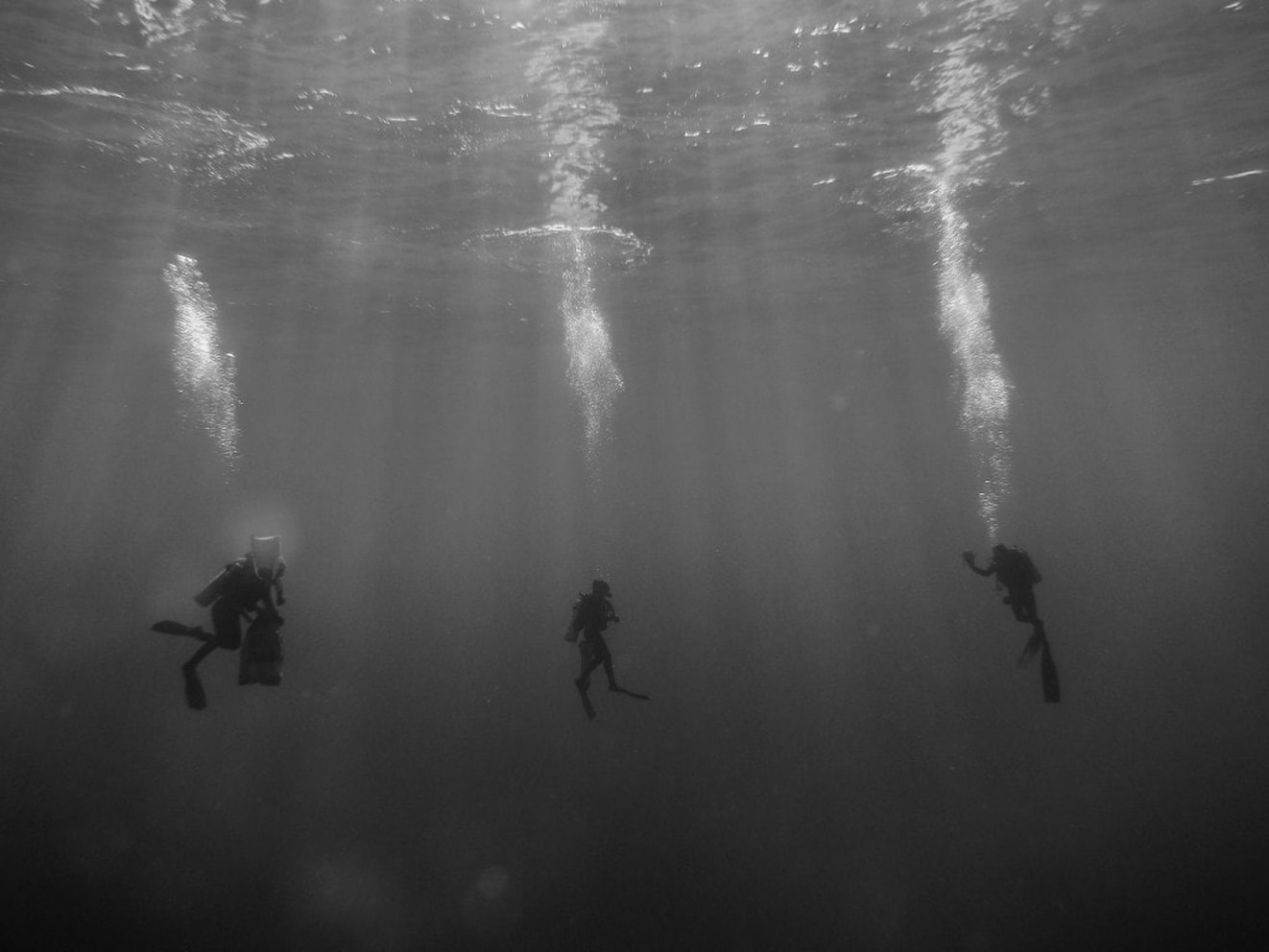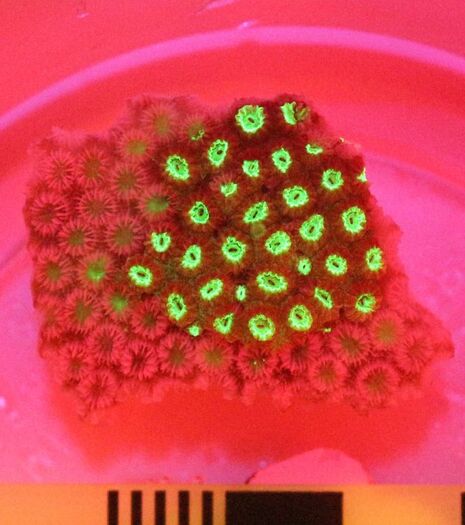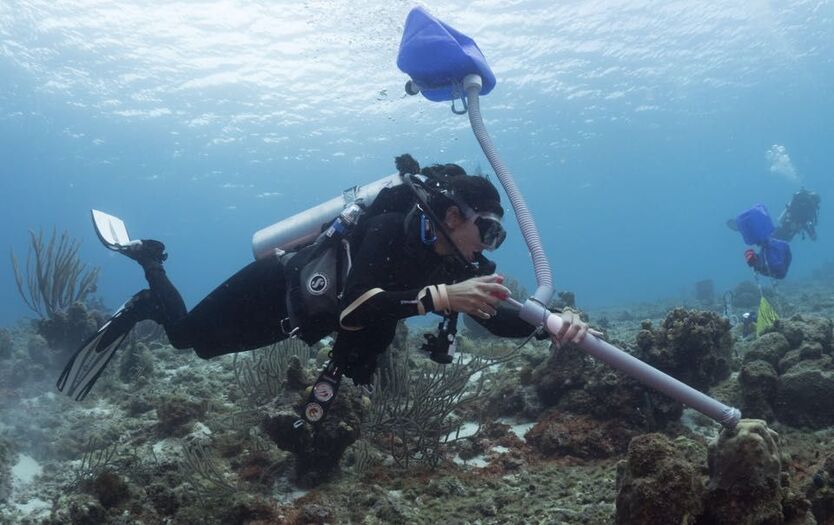Coral reefs are among the most diverse ecosystems on the planet, and viruses are the most diverse biological entities in these environments.
Our lab is studying how viruses that infect bacteria can help coral reefs thrive by killing pathogenic bacteria, and what happens when instead of killing, viruses make alliances with their bacterial hosts for the detriment of corals.
Our lab is studying how viruses that infect bacteria can help coral reefs thrive by killing pathogenic bacteria, and what happens when instead of killing, viruses make alliances with their bacterial hosts for the detriment of corals.
VIRAL PREDATION PRESSURE ON CORAL REEFS

Viruses can behave like predators of bacteria, just like sharks prey on herbivorous fish. Our 2023 study published on BMC Biology showed that pressure from these two predator groups together, sharks and viruses, contribute to healthy coral reefs.
However, on degraded reefs with fewer corals, there is an absence of fish and viral predators. Instead, viruses can collude with the bacteria they infect by turning these bacteria pathogenic and causing further coral loss.
However, on degraded reefs with fewer corals, there is an absence of fish and viral predators. Instead, viruses can collude with the bacteria they infect by turning these bacteria pathogenic and causing further coral loss.


